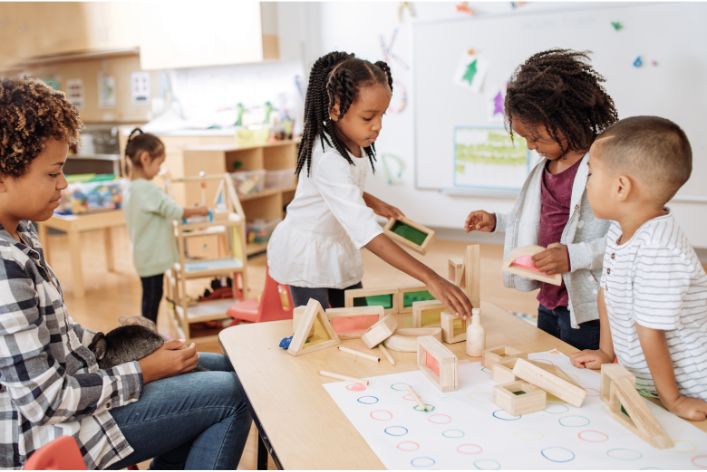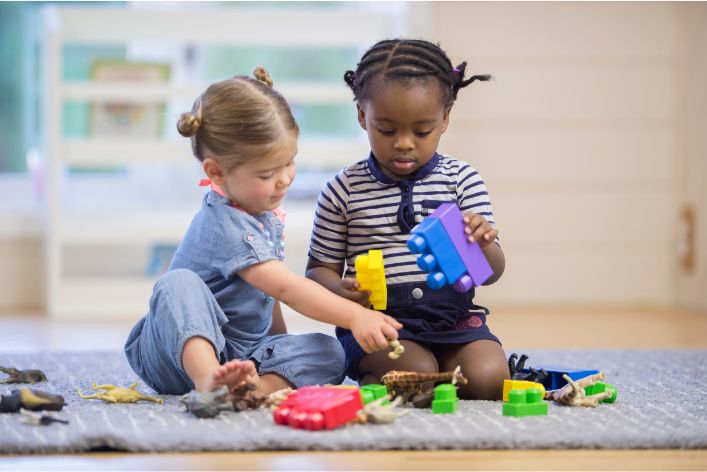Understanding the Importance of Social Skills for Children’s Overall Development
Defining Social Skills and Their Role
Social skills enable children to interact effectively with others.
They include communication, empathy, cooperation, and conflict resolution.
Moreover, these skills lay the foundation for building meaningful relationships.
Children with strong social skills tend to have better emotional well-being.
Impact on Emotional and Cognitive Growth
Developing social skills supports children’s emotional self-regulation.
It helps them recognize and express their emotions appropriately.
Consequently, they manage stress and frustration more effectively.
Social interaction also stimulates cognitive development by encouraging problem-solving.
Through peer engagement, children learn to understand different perspectives.
Influence of Social Skills on Academic and Future Success
Social competence positively influences academic performance.
Teachers notice increased participation and collaboration among socially skilled children.
These children also exhibit higher motivation to learn new concepts.
Furthermore, social skills contribute to success in future workplaces.
Employers often seek candidates with strong communication and teamwork abilities.
Long-Term Benefits of Social Skills for Personal Life
Good social skills promote lasting friendships and support networks.
Parenting Made Just for You
Get personalized Parenting Solutions tailored to your child’s needs. Transform your parenting journey with expert guidance in 1-3 days.
Get StartedThey reduce feelings of loneliness and social anxiety.
Additionally, social competence fosters resilience during life challenges.
Children equipped with social skills tend to live happier lives.
Modeling Positive Social Behavior as Parents
Demonstrating Respect and Kindness
Parents set the foundation for social skills by showing respect in daily interactions.
For example, Maria Johnson always greets neighbors politely and listens attentively.
She encourages her children to mirror this behavior by treating everyone kindly.
In addition, showing empathy when someone is upset teaches children how to respond thoughtfully.
Therefore, parents should actively practice patience during conflicts to guide their kids effectively.
Communicating Effectively with Children and Others
Clear communication from parents models how children should express themselves.
Tom and Angela Ramirez make sure to speak calmly and explain their feelings honestly.
This practice helps their children understand the value of expressing emotions appropriately.
Moreover, asking open-ended questions encourages conversations and active listening.
As a result, children learn to engage in meaningful dialogues with peers and adults alike.
Encouraging Cooperation and Sharing
Parents who cooperate with family members demonstrate collaboration in action.
Unveil the Perfect Name that Tells Your Family's Story
Let us help you find a name that embodies your family's values, traditions, and dreams. Our personalized consultation weaves cultural insights to create a name that's uniquely yours.
Get StartedFor instance, the Bennett family involves everyone in household chores fairly.
Sharing responsibilities promotes respect for others' efforts and teamwork.
Also, parents can role-play situations where sharing leads to positive outcomes.
Consequently, children adopt cooperative behaviors and understand their importance socially.
Managing Emotions and Conflict Positively
Adults who regulate their emotions provide strong examples for children to follow.
Sarah Liu uses deep breathing to stay calm when frustrated during family discussions.
She explains her coping strategies openly to help her children manage anger.
Additionally, resolving disagreements respectfully shows problem-solving skills effectively.
Thus, children observe constructive conflict resolution and apply it in their interactions.
Encouraging Open Communication and Active Listening at Home
Creating a Welcoming Environment for Conversation
Parents should foster a warm and inviting atmosphere at home.
This environment encourages children to share their thoughts and feelings freely.
Moreover, showing genuine interest helps children feel valued and understood.
For example, Laura often sets aside time each evening to chat with her daughter, Sophie.
Consequently, Sophie feels comfortable discussing her daily experiences openly.
Practicing Active Listening Skills
Active listening involves fully focusing on the speaker without interruptions.
Parents can model this behavior by maintaining eye contact and nodding along.
Importantly, responding thoughtfully shows that the parent genuinely cares.
For instance, when Mark listens to Ethan's stories, he repeats key points to confirm understanding.
Thus, children learn to express themselves confidently knowing they are heard.
Using Open-Ended Questions to Promote Dialogue
Open-ended questions invite children to elaborate beyond simple yes or no answers.
These questions encourage critical thinking and deeper conversations.
Amelia often asks her son, “What was the best part of your day?”
Consequently, he shares details he might otherwise keep to himself.
This practice strengthens communication skills and emotional intelligence.
Teaching Empathy Through Reflective Conversations
Parents can guide children to consider others' feelings during discussions.
This empathetic approach helps build meaningful relationships.
For example, Samuel asks his daughter, “How do you think your friend felt in that situation?”
Therefore, children develop awareness of others' perspectives and emotions.
In turn, this supports healthy social interactions both at home and in school.
Encouraging Consistent Family Communication Rituals
Establish regular routines like family dinners to promote ongoing communication.
These moments provide valuable opportunities to practice open dialogue.
Hannah's family shares highlights from their day during dinner each night.
As a result, all family members stay connected and engaged with each other.
Furthermore, these rituals strengthen trust and mutual respect in relationships.
Gain More Insights: Understanding the Emotional Growth Stages in Nigerian Children
Providing Opportunities for Children to Engage in Group Activities and Playdates
Importance of Group Activities
Children develop essential social skills through group interactions.
Moreover, they learn cooperation and empathy by playing with peers.
Such experiences build their confidence in social settings.
Therefore, parents should encourage regular participation in group activities.
Organizing Playdates Effectively
Playdates offer a controlled environment for children to practice social skills.
Parents can start by inviting one or two children with similar interests.
Additionally, choosing familiar locations helps children feel safe and relaxed.
During playdates, adults should observe and gently guide social interactions.
They can also model positive communication and conflict resolution techniques.
Choosing the Right Activities
Activities that require teamwork promote collaboration among children.
Games like building blocks or group art projects encourage shared goals.
Outdoor play, such as sports or scavenger hunts, fosters cooperation and communication.
Furthermore, role-playing games help children understand different perspectives.
Involving Community Resources
Community centers often offer group classes that enhance social interaction.
Libraries and local clubs sometimes host storytimes or craft sessions for kids.
These settings provide diverse social experiences beyond immediate family and friends.
Besides, they help children adapt to new social environments with ease.
Encouraging Reflection and Feedback
After activities, parents should talk with their children about their experiences.
Discussing feelings and interactions reinforces learning from social play.
Parents can ask questions like “How did you help your friend today?”
This reflection helps children recognize successful social behaviors.
Consequently, it motivates them to apply these skills in future situations.
Discover More: How to Handle Developmental Differences With Confidence
Teaching Empathy and Emotional Recognition Through Everyday Interactions
Fostering Emotional Awareness
Parents play a crucial role in helping children identify emotions.
They can model emotional recognition by naming feelings during daily activities.
For example, Sarah often says, “I feel happy when we play together.”
This practice helps children associate words with their own emotions.
Moreover, discussing emotions openly reduces confusion and builds trust.
Parents should encourage children to express how they feel using simple terms.
Using Storytelling to Promote Empathy
Storytelling provides relatable situations for children to understand others’ feelings.
Linda reads books to her son, emphasizing characters’ emotions throughout the story.
She asks questions like, “How do you think the character feels now?”
This invites her son to consider perspectives beyond his own experience.
Also, stories help children recognize emotions in multiple contexts.
They learn to connect actions with emotional outcomes effectively.
Encouraging Perspective-Taking in Daily Life
Parents can guide children to see situations from another’s viewpoint.
During conflicts, Michael helps his daughter imagine how a friend might feel.
This habit builds empathy by creating an awareness of others’ emotions.
Parents should validate children’s feelings while gently exploring others’ reactions.
Through regular practice, children improve emotional intelligence and social understanding.
Practical Activities to Enhance Emotional Recognition
Engaging children in simple, interactive exercises strengthens empathy skills.
For instance, the “Feelings Charades” game helps children identify emotions through actions.
Parents like Emma use this method to make learning emotions fun and memorable.
Another approach involves discussing daily experiences and labeling emotions together.
Such activities build emotional vocabulary and recognition gradually but effectively.
Creating a Supportive Emotional Environment
Children thrive when parents respond with patience and understanding.
Maria consistently acknowledges her son’s feelings during his ups and downs.
This acceptance encourages children to be more open and honest emotionally.
Furthermore, a nurturing environment fosters empathy as children feel safe to explore feelings.
Parents should offer comfort and guidance without judgment or criticism.
Ultimately, this approach cultivates emotional connection and social competence.
Explore Further: Recognizing Emotional and Social Milestones in Nigerian Children
Guiding Children on Conflict Resolution and Problem-Solving Techniques
Understanding Conflict and Its Role in Social Development
Children naturally encounter disagreements when interacting with others.
Parents play a crucial role in helping them navigate these situations.
Conflict offers valuable opportunities to learn empathy and communication.
Therefore, it is important to teach children to approach conflicts calmly.
This mindset fosters healthier relationships and emotional growth.
Teaching Effective Communication Skills
First, encourage children to express their feelings clearly and respectfully.
Model active listening by giving full attention when they speak.
Additionally, introduce the use of “I” statements to reduce blame.
For example, say, “I feel upset when you take my toy,” instead of accusations.
This technique helps minimize defensiveness and opens dialogue.
Introducing Problem-Solving Strategies
Begin by helping children identify the problem through careful observation.
Guide them to brainstorm multiple solutions without judgment.
Encourage creativity and consider all possible options freely.
Next, evaluate the potential outcomes of each choice together.
This approach empowers children to make informed decisions confidently.
Teaching Steps to Resolve Conflicts
Start by creating a calm environment to discuss disagreements rationally.
Then, have each child describe their perspective without interruption.
Encourage mutual understanding by summarizing each other’s points.
After that, collaborate on finding a fair and acceptable solution.
Finally, agree on a plan to prevent similar conflicts in the future.
Encouraging Empathy and Perspective-Taking
Help children imagine how others feel during a disagreement.
Ask questions like, “How would you feel if that happened to you?”
This exercise builds emotional awareness and compassion.
Teaching empathy reduces aggressive reactions in tense situations.
Consistently practicing these skills strengthens social bonds.
Role-Playing and Practicing Techniques
Use role-playing games to simulate common conflicts children face.
This method allows safe practice of communication and problem-solving skills.
Rotate roles so each child experiences different perspectives.
Provide positive feedback to reinforce effective behaviors.
Regular practice builds confidence to handle real-life conflicts independently.
Supporting Persistence and Patience in Conflict Resolution
Remind children that resolving conflicts often requires time and effort.
Teach patience during challenging interactions and setbacks.
Celebrate small successes to motivate continued improvement.
Parents’ encouragement boosts children’s resilience in social situations.
Ultimately, these skills contribute to lifelong emotional intelligence and harmony.
Discover More: How to Recognize and Support Delayed Milestones in Nigerian Children

Limiting Screen Time and Promoting Face-to-Face Social Interactions
Impact of Excessive Screen Time on Social Skills
Too much screen time reduces opportunities for children to practice social skills.
Children may struggle with reading facial expressions and tone of voice.
Research shows that screen time can hinder children’s ability to build empathy.
Therefore, limiting screen time creates space for meaningful social experiences.
Strategies to Reduce Screen Time
Parents should set clear and consistent rules about daily screen usage.
For example, designate no-screen zones such as the dinner table and bedrooms.
Additionally, encourage children to engage in hobbies away from screens.
Using parental controls helps manage and monitor screen time effectively.
Encouraging Face-to-Face Interactions
Face-to-face interactions allow children to develop communication and relationship skills.
To promote this, parents can arrange playdates with peers or family friends.
Family activities such as board games and outdoor trips foster direct engagement.
Schools and community centers often host social clubs that children can join.
Creating a Social Environment at Home
Parents should model positive social behavior through active listening and empathy.
Encourage children to express themselves and resolve conflicts respectfully.
Regular family gatherings strengthen bonds and improve social understanding.
Celebrating milestones together motivates children to participate socially.
Benefits of Balanced Digital and In-Person Interactions
Balanced screen time combined with real-life socializing enhances social development.
This balance helps children navigate both digital and face-to-face communication.
It prepares children for successful relationships in school and future workplaces.
Ultimately, parents play a crucial role in guiding healthy social habits.
Supporting Involvement in Community and Extracurricular Programs to Build Social Networks
Encouraging Active Participation
Parents can encourage children to join clubs, teams, or local groups that interest them.
These environments provide natural opportunities to meet peers and make friends.
Consequently, children learn to communicate and collaborate effectively.
Additionally, involvement boosts their confidence in social settings.
Exploring Diverse Activities
Parents should help children explore a variety of activities such as sports, music, or art programs.
This diversity broadens their social experiences and helps discover personal interests.
It also exposes them to different social groups and cultural perspectives.
As a result, children develop empathy and adaptability with new acquaintances.
Facilitating Regular Attendance
Consistent participation in community programs strengthens existing friendships.
Parents can support this by managing schedules to reduce conflicts.
Moreover, attending events regularly helps children feel more connected and committed.
Over time, this builds a reliable social network outside of school.
Supporting Social Skill Development
Parents can model positive social behaviors such as listening and respectful communication.
They can also role-play social situations to practice new skills.
Furthermore, praising efforts encourages children to engage enthusiastically.
These strategies prepare children to navigate group interactions confidently.
Collaborating with Program Leaders
Parents should maintain communication with coaches, teachers, or organizers.
This collaboration helps monitor the child’s social progress and challenges.
Together, they can create supportive environments that foster inclusion.
Consequently, children feel valued and motivated to participate actively.
Reinforcing Positive Social Behaviors with Praise and Constructive Feedback
Understanding the Importance of Positive Reinforcement
Parents play a crucial role in shaping children’s social skills.
They can encourage positive behaviors through consistent reinforcement.
Moreover, praising good social interactions boosts children’s confidence.
Such reinforcement motivates children to repeat positive behaviors.
In addition, constructive feedback helps correct undesirable actions gently.
Using Praise Effectively to Encourage Social Skills
Offer specific praise that highlights the child’s positive actions.
For example, say, “I really liked how you shared your toys with Mia.”
This approach helps children understand what behaviors to continue.
Also, praise should be timely to immediately reinforce good behavior.
Be sincere to ensure your praise feels genuine and meaningful.
Providing Constructive Feedback to Guide Improvement
Explain what behavior needs adjustment in a calm and clear manner.
Use phrases like, “Next time, try to listen when others are talking.”
This encourages children to reflect on their actions without feeling criticized.
Balance feedback by highlighting strengths alongside areas for growth.
Consistent, supportive guidance helps children develop self-awareness and empathy.
Strategies for Balancing Praise and Feedback
Focus on the behavior, not the child’s character, to avoid labeling.
Encourage children by focusing on their effort rather than just results.
Use a positive tone even when offering corrective advice.
Allow opportunities for children to practice new social skills in real-life situations.
Ultimately, patience and patience foster a nurturing environment for growth.
Helping Children Develop Self-Confidence to Improve Social Interactions
Role of Self-Confidence in Social Development
Children with self-confidence engage more easily in social situations.
They express their thoughts clearly and listen actively to others.
Moreover, self-confidence encourages children to initiate conversations.
It helps them overcome fear of rejection or making mistakes.
Thus, building self-confidence is essential for improving social skills.
Practical Ways Parents Can Build Self-Confidence
Encourage Positive Self-Talk
Teach children to replace negative thoughts with positive affirmations.
For example, say, “I can do this” instead of “I am not good enough.”
This practice helps children approach social interactions optimistically.
Provide Opportunities for Success
Allow children to try new activities suited to their interests.
Celebrate their efforts and achievements sincerely and specifically.
These experiences reinforce their belief in their abilities.
Model Confident Behavior
Parents should demonstrate confidence in their daily interactions.
Children learn by observing how adults handle challenges gracefully.
Therefore, showing calmness and assertiveness inspires them to do the same.
Supporting Children Through Social Challenges
Practice Social Skills at Home
Role-play common social scenarios together, like greeting someone new.
Give gentle feedback and praise improvements to boost morale.
This safe environment encourages kids to experiment with social skills.
Encourage Resilience After Setbacks
Explain that everyone faces social difficulties sometimes.
Help children reflect on what they can learn from tough experiences.
Encourage them to try again rather than avoiding social opportunities.
Creating a Supportive Environment
Foster open communication where children feel heard and valued.
Encourage friendships and group activities that match their comfort level.
Collaborate with teachers or coaches to support social confidence in multiple settings.
Together, these strategies build a foundation for healthy social interactions.
Additional Resources
Pandemic babies behind on communication at age two – but other …




